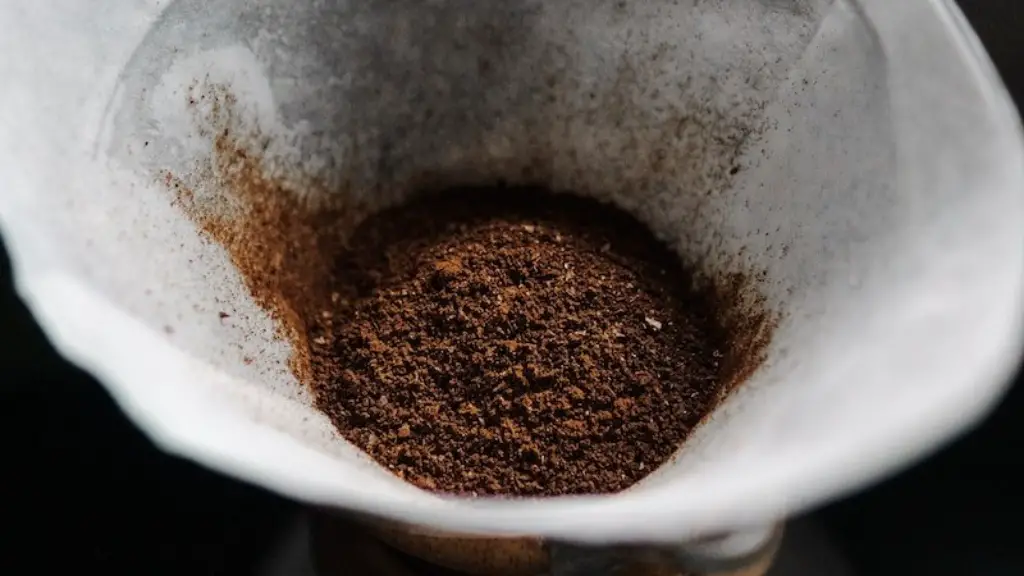Coffee has been known to be one of the most popular beverages, consumed by millions of people around the world. It provides an energy boost, tastes great and can help to improve your mood. The question is, when is it OK to drink coffee?
It is important to understand that coffee contains caffeine, a stimulant that can have an effect on your body. Research has shown that drinking moderate amounts of coffee can have a number of health benefits, such as improved alertness, enhanced concentration and increased energy levels. The key here is moderation – it’s important not to overdo it. Too much caffeine can cause headaches, restlessness and poor sleep quality.
According to experts, the recommended amount of caffeine to consume in a day is around 400 mg. Most 8-ounce cups of coffee contain around 95 mg of caffeine, so four cups is the maximum amount you should consume in a day. It may also be beneficial to spread out your coffee consumption throughout the day. For example, you could have one cup in the morning, one cup in the afternoon and two cups in the evening.
When it comes to timing, the best time to drink coffee is in the morning. The effects of caffeine peak around 30 minutes after consumption and can last up to six hours. In the morning, these effects can help to kick start your day and give you the energy you need to tackle your tasks.
It is also important to consider any medical issues or conditions you may have. If you suffer from anxiety, for example, it may be worth avoiding or limiting your caffeine consumption as it can exacerbate anxiety symptoms. Similarly, people with high blood pressure, heart problems and stomach conditions may need to consider their caffeine intake.
When it comes to pregnancy, obstetricians may advise you to limit your caffeine intake or avoid it altogether. This is because the effects of caffeine can pass through the placenta to the baby, increasing the baby’s heart rate and potentially leading to miscarriage. The same goes for nursing mothers, as caffeine can pass through breast milk.
Ultimately, it is important to listen to your body and be aware of how caffeine affects you. Everyone is different and some people may be more sensitive to the effects of caffeine than others. As with everything, moderation is key and it is important to make sure you don’t overdo it.
Dangers of Overconsumption
Despite the numerous benefits of coffee consumption, there are also potential dangers of overconsumption. Regularly drinking too much coffee can cause dehydration, headaches, fatigue, nausea and increased heart rate. Some research also suggests that too much caffeine can lead to a state of anxiety and make it harder to focus or concentrate. Of course, these effects are temporary and can be reversed by reducing your caffeine intake.
It is also important to be aware that caffeine is addictive. If you find yourself relying on a regular coffee intake for energy, this could be a sign that you are starting to become dependent on caffeine. The best way to break this addiction is to slowly reduce your daily caffeine intake and focus on getting enough sleep, as this will help naturally boost your energy levels.
When it comes to coffee, it is best to avoid drinking more than four cups a day and to spread out your consumption throughout the day. It is also important to be aware of any potential medical issues and to discuss your coffee intake with a healthcare professional if necessary. Remember to stay mindful of how much coffee you are consuming and be aware of the potential risks.
What About Decaf?
For those who want to enjoy the pleasure of coffee without the caffeine, decaf is an ideal option. Decaffeinated coffee contains only trace amounts of caffeine, typically no more than 2.5 mg per 8-ounce cup. This means that you can enjoy the taste of coffee without worrying about the effects of caffeine.
What’s more, decaffeinated coffee has all the same health benefits as regular coffee as it still contains essential nutrients and minerals, such as magnesium, potassium and antioxidants. This means that you can still get all the same benefits you would from a cup of coffee, without the caffeine.
Decaf coffee is also the perfect option for those who are sensitive to the effects of caffeine and cannot have regular coffee. It is a great way to get your coffee fix without having to worry about having over-caffeinated or having any adverse effects.
Decaffeination processes have also come a long way over the years, making decaf coffee much more accessible to coffee drinkers. Decaf coffee no longer has the same bitterness as it once did and is now just as satisfying and enjoyable as regular coffee.
What About Coffee Alternatives?
For those who don’t like the taste of coffee or find it too strong, there are some great coffee alternatives available. Chicory coffee is a great option as it is caffeine free yet still full of flavour. It has an earthy taste and can be enjoyed hot or cold. Another option is herbal teas, which are non-caffeinated and naturally sweet. Herbal teas can come in a range of flavours, from fruity to floral, offering something for everyone.
For those after an energy boost, there are some great natural energy drinks on the market too. These are often made from natural ingredients such as green tea, guarana, ginseng and coconut water, making them a great alternative to coffee. Many of these drinks also have added B vitamins, which help your body to process energy more efficiently.
If you are looking for an energy boost without the caffeine, then these are great options. They are not only packed with energy-boosting nutrients but also have various health benefits, such as improved digestion and strengthened immunity.
The Final Verdict
Overall, coffee can be a great way to give yourself an energy boost and improve your alertness and productivity. However, it is important to be mindful of the potential risks and stay within the recommended daily intake. Similarly, it is important to be aware of any medical issues or conditions you may have and discuss your coffee intake with a healthcare professional if necessary.
For those who are looking for a caffeine-free alternative, there are some great options available. Whether it’s decaf coffee, chicory coffee or herbal tea, there is something for everyone. So, if you’re looking for an energy boost with fewer risks and fewer side effects, these are great options to explore.




